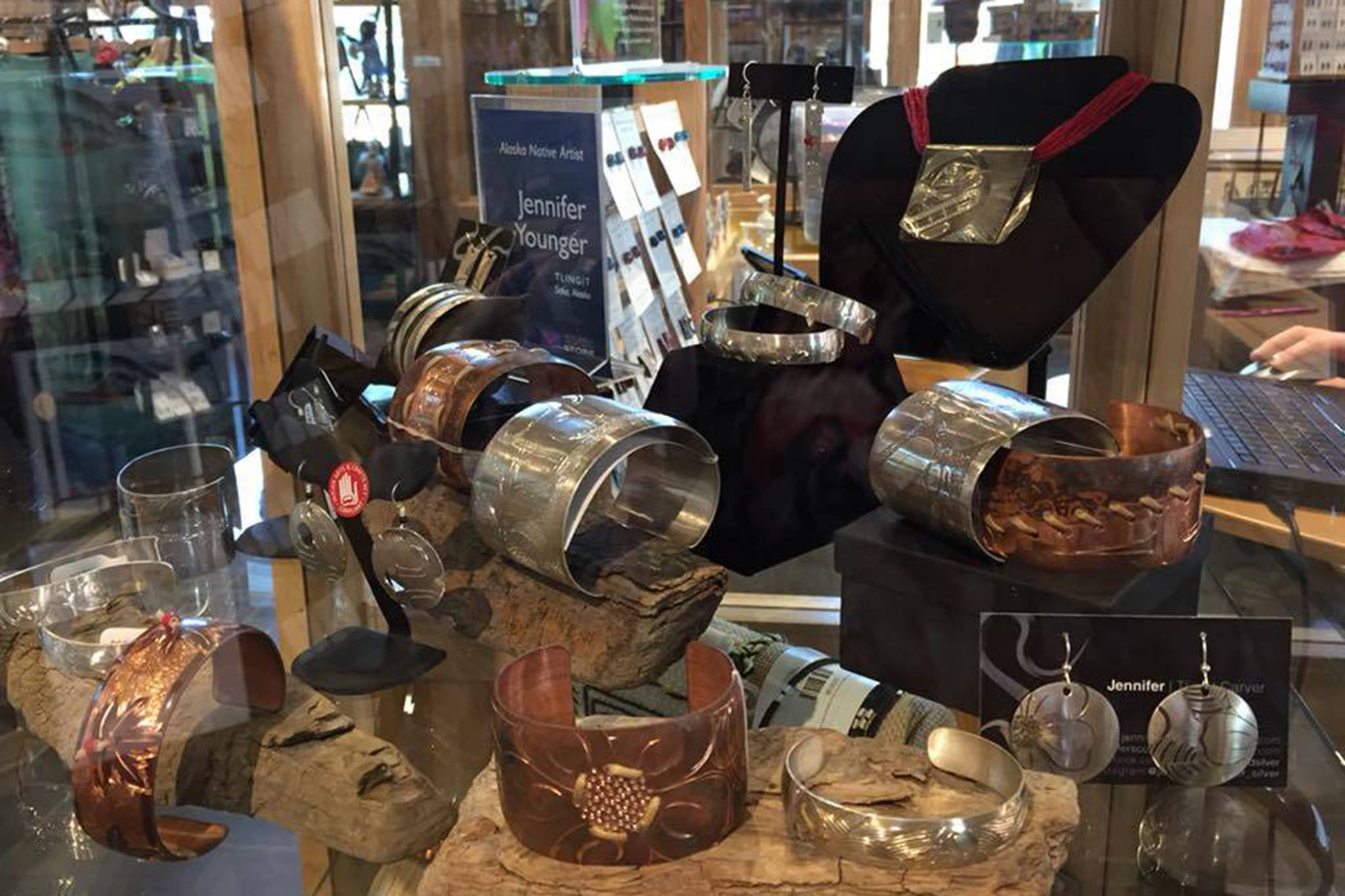At our Sealaska Heritage Store, we often field questions regarding cultural appropriation. People worry about wearing apparel featuring Northwest Coast formline design. They are uneasy donning jewelry that depicts our art. The list goes on.
I want to set the record straight. It’s true that some Northwest Coast designs are owned by clans and are considered sacred by clans, and only clan members are allowed to use and wear them. People with a paternal connection to the clan, such as child of a clan or grandchildren, may be granted a “use right.” Clan-owned items include both tangible and intangible property, for example a ceremonial object as well as the crest or design that appears on that object. Many songs, stories and names are also clan-owned, as are the designs associated with them.
We own our crests, our sacred property. But we also live in a modern society, and our people are engaged in a cash economy. The proceeds from the sale of Northwest Coast art and other pieces helps sustain our artists and villages.
Wearing clothing or jewelry with generic formline designs created for the commercial market is not cultural appropriation. For example, the pieces we sell at the Sealaska Heritage Store are okay for non-Native people to buy, wear and use. I often point to the city of Santa Fe in New Mexico, where the entire community celebrates and embraces Southwest Native art. There, people from the world over travel to Santa Fe to buy Indian art during the city’s annual art market, and some artists earn enough in a weekend to sustain themselves for the entire year. We want non-Native people to buy and appreciate Northwest Coast art and other pieces. You are a key component of the commercial market that sustains our artists in Alaska. We also want to ensure that consumers are protected and buy authentic Native art. The Indian Arts and Crafts Acts makes it illegal to misrepresent objects and sell them as Native-made when in fact they may be fake Native art.
Though clan-owned property is closely monitored, the basic principles of formline design can be freely shared with those outside of the culture. SHI’s policy, adopted by our Board of Trustees with the input of our Native Artist Committee and Council of Traditional Scholars, is to share Northwest Coast art traditions and even help train non-Native teachers to present them to their students.
I do appreciate that people are more aware today of cultural appropriation. I hope this letter allays worries about cultural appropriation and that buyers feel good about purchasing, wearing and using Northwest Coast pieces created for the commercial market. We are working to make Northwest Coast art a national treasure and Juneau the Northwest Coast Arts Capital for the region and beyond.
• Rosita Kaaháni Worl, Ph.D., is president of Sealaska Heritage Institute. Columns, My Turns and Letters to the Editor represent the view of the author, not the view of the Juneau Empire.

